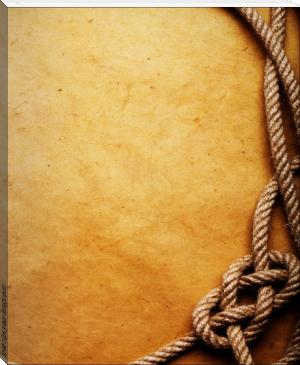The Winter's Tale by William Shakespeare (book club suggestions txt) 📖

- Author: William Shakespeare
Book online «The Winter's Tale by William Shakespeare (book club suggestions txt) 📖». Author William Shakespeare
FIRST ATTENDANT.
My lord?
LEONTES. How does the boy?
FIRST ATTENDANT.
He took good rest to-night; 'Tis hop'd his sickness is discharg'd.
LEONTES. To see his nobleness! Conceiving the dishonour of his mother, He straight declin'd, droop'd, took it deeply, Fasten'd and fix'd the shame on't in himself, Threw off his spirit, his appetite, his sleep, And downright languish'd. - Leave me solely: - go, See how he fares. -
[Exit FIRST ATTENDANT.]
Fie, fie! no thought of him; The very thought of my revenges that way Recoil upon me: in himself too mighty, And in his parties, his alliance, - let him be, Until a time may serve: for present vengeance, Take it on her. Camillo and Polixenes Laugh at me; make their pastime at my sorrow: They should not laugh if I could reach them; nor Shall she within my power.
[Enter PAULINA, with a Child.]
FIRST LORD.
You must not enter.
PAULINA. Nay, rather, good my lords, be second to me: Fear you his tyrannous passion more, alas, Than the queen's life? a gracious innocent soul, More free than he is jealous.
ANTIGONUS.
That's enough.
SECOND ATTENDANT. Madam, he hath not slept to-night; commanded None should come at him.
PAULINA.
Not so hot, good sir; I come to bring him sleep. 'Tis such as you, - That creep like shadows by him, and do sigh At each his needless heavings, - such as you Nourish the cause of his awaking: I Do come, with words as med'cinal as true, Honest as either, to purge him of that humour That presses him from sleep.
LEONTES.
What noise there, ho?
PAULINA. No noise, my lord; but needful conference About some gossips for your highness.
LEONTES.
How! - Away with that audacious lady! - Antigonus, I charg'd thee that she should not come about me: I knew she would.
ANTIGONUS.
I told her so, my lord, On your displeasure's peril, and on mine, She should not visit you.
LEONTES.
What, canst not rule her?
PAULINA. From all dishonesty he can: in this, - Unless he take the course that you have done, Commit me for committing honour, - trust it, He shall not rule me.
ANTIGONUS.
La you now, you hear When she will take the rein, I let her run; But she'll not stumble.
PAULINA.
Good my liege, I come, - And, I beseech you, hear me, who professes Myself your loyal servant, your physician, Your most obedient counsellor: yet that dares Less appear so, in comforting your evils, Than such as most seem yours: - I say I come From your good queen.
LEONTES.
Good queen!
PAULINA.
Good queen, my lord, Good queen: I say, good queen; And would by combat make her good, so were I A man, the worst about you.
LEONTES.
Force her hence!
PAULINA. Let him that makes but trifles of his eyes First hand me: on mine own accord I'll off; But first I'll do my errand - The good queen, For she is good, hath brought you forth a daughter; Here 'tis; commends it to your blessing.
[Laying down the child.]
LEONTES.
Out! A mankind witch! Hence with her, out o' door: A most intelligencing bawd!
PAULINA.
Not so: I am as ignorant in that as you In so entitling me; and no less honest Than you are mad; which is enough, I'll warrant, As this world goes, to pass for honest.
LEONTES.
Traitors! Will you not push her out? Give her the bastard: - Thou dotard! [To ANTIGONUS] Thou art woman-tir'd, unroosted By thy Dame Partlet here: - take up the bastard; Take't up, I say; give't to thy crone.
PAULINA.
For ever Unvenerable be thy hands, if thou Tak'st up the princess by that forced baseness Which he has put upon't!
LEONTES.
He dreads his wife.
PAULINA. So I would you did; then 'twere past all doubt You'd call your children yours.
LEONTES.
A nest of traitors?
ANTIGONUS. I am none, by this good light.
PAULINA.
Nor I; nor any, But one that's here; and that's himself: for he The sacred honour of himself, his queen's, His hopeful son's, his babe's, betrays to slander, Whose sting is sharper than the sword's; and will not, - For, as the case now stands, it is a curse He cannot be compell'd to't, - once remove The root of his opinion, which is rotten As ever oak or stone was sound.
LEONTES.
A callat Of boundless tongue, who late hath beat her husband, And now baits me! - This brat is none of mine; It is the issue of Polixenes: Hence with it! and together with the dam, Commit them to the fire.
PAULINA.
It is yours! And, might we lay the old proverb to your charge, So like you 'tis the worse. - Behold, my lords, Although the print be little, the whole matter And copy of the father, - eye, nose, lip, The trick of his frown, his forehead; nay, the valley, The pretty dimples of his chin and cheek; his smiles; The very mould and frame of hand, nail, finger: - And thou, good goddess Nature, which hast made it So like to him that got it, if thou hast The ordering of the mind too, 'mongst all colours No yellow in't, lest she suspect, as he does, Her children not her husband's!
LEONTES.
A gross hag! And, losel, thou art worthy to be hang'd That wilt not stay her tongue.
ANTIGONUS.
Hang all the husbands That cannot do that feat, you'll leave yourself Hardly one subject.
LEONTES.
Once more, take her hence.
PAULINA. A most unworthy and unnatural lord Can do no more.
LEONTES.
I'll have thee burn'd.
PAULINA.
I care not. It is an heretic that makes the fire, Not she which burns in't. I'll not call you tyrant But this most cruel usage of your queen, - Not able to produce more accusation Than your own weak-hing'd fancy, - something savours Of tyranny, and will ignoble make you, Yea, scandalous to the world.
LEONTES.
On your allegiance, Out of the chamber with her! Were I a tyrant, Where were her life? She durst not call me so, If she did know me one. Away with her!
PAULINA. I pray you, do not push
 In literature a drama genre deserves your attention. Dramas are usually called plays. Every person is made up of two parts: good and evil. Due to life circumstances, the human reveals one or another side of his nature. In drama we can see the full range of emotions : it can be love, jealousy, hatred, fear, etc. The best drama books are full of dialogue. This type of drama is one of the oldest forms of storytelling and has existed almost since the beginning of humanity. Drama genre - these are events that involve a lot of people. People most often suffer in this genre, because they are selfish. People always think to themselves first, they want have a benefit.
In literature a drama genre deserves your attention. Dramas are usually called plays. Every person is made up of two parts: good and evil. Due to life circumstances, the human reveals one or another side of his nature. In drama we can see the full range of emotions : it can be love, jealousy, hatred, fear, etc. The best drama books are full of dialogue. This type of drama is one of the oldest forms of storytelling and has existed almost since the beginning of humanity. Drama genre - these are events that involve a lot of people. People most often suffer in this genre, because they are selfish. People always think to themselves first, they want have a benefit.




Comments (0)